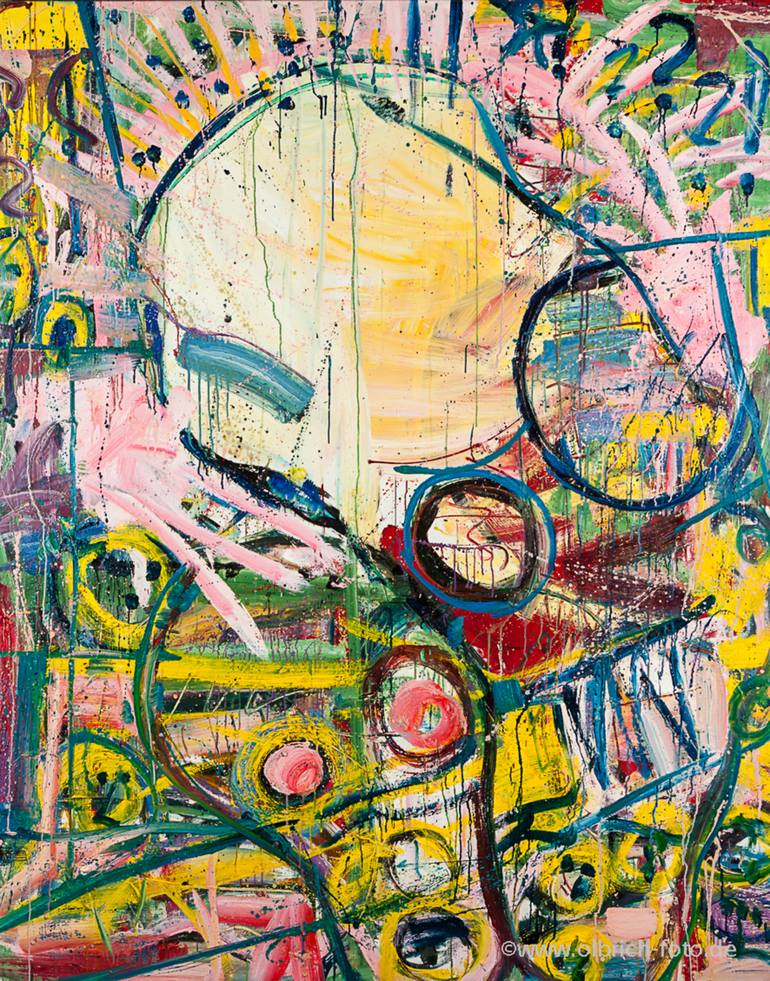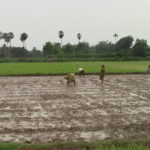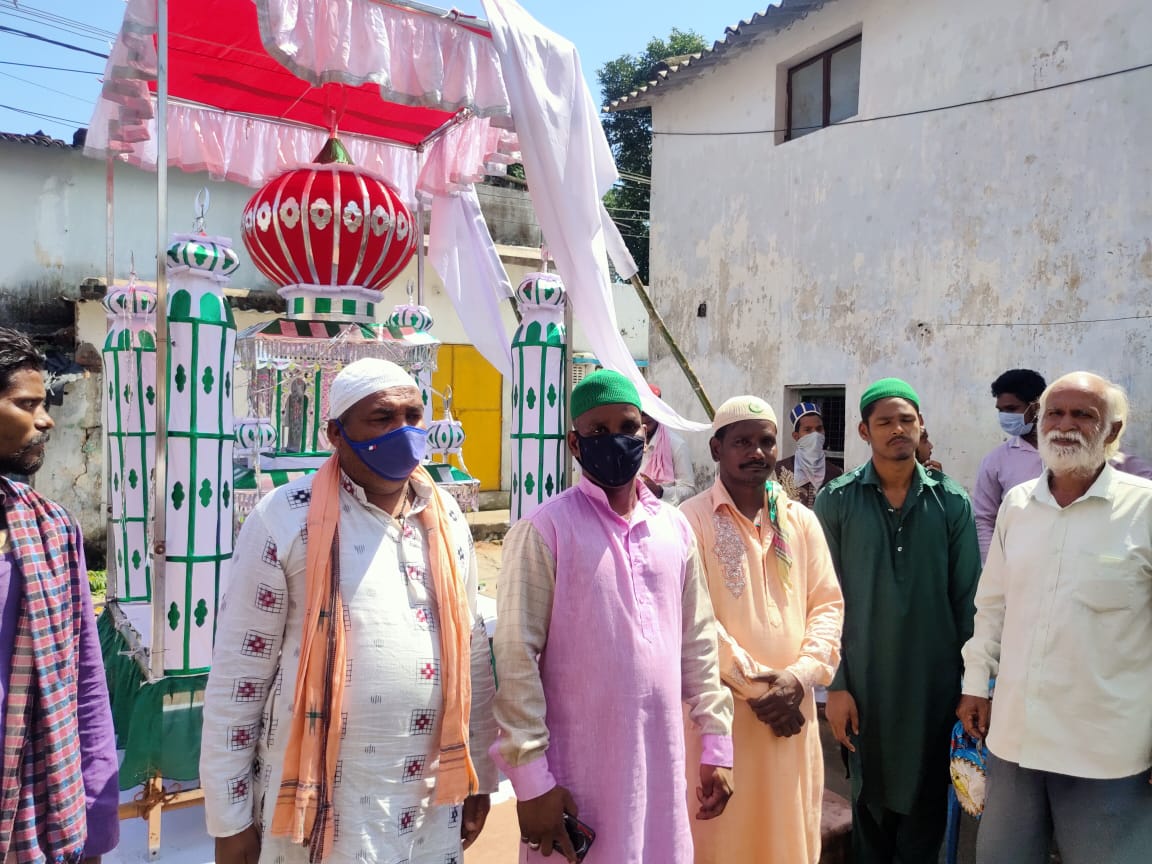ମଣିଷ ଦିନକୁ ଦିନ ଅଧିକରୁ ଅଧିକ ସମ୍ବେଦନହୀନ ହୋଇଚାଲିଛି । ଜୀବଜନ୍ତୁଙ୍କ ଉପରେ ନିର୍ବିଚାରରେ ଅତ୍ୟାଚାର କରୁଥିବା ମଣିଷ ଏବେ ତାହାର ନିଜ ପ୍ରଜାତିକୁ ଅନ୍ୟାୟର ପରିଧି ଭିତରକୁ ନେଇ ଆସିଛି ।
ପଦାର୍ଥବିଜ୍ଞାନୀ ଫିଟଜୋଫ କାପ୍ରା (Fritjof Capra) ତାଙ୍କର ବିଖ୍ୟାତ ପୁସ୍ତକ ଦ ୱେବ ଅଫ ଲାଇଫ (The web of life – A new synthesis of mind and matter) – Whereas the old paradigm is based on anthropocentric (human-centered)values, deep ecology is grounded in ecological (earth-centered) values.It is a worldview that acknowledges the inherent value of non-human life. All living beings are members of ecological communities bound together in a network of inter-dependencies. When this deep ecological perception becomes part of our daily awareness, a radically new system of ethics emerges.(Deep Ecology – A New Paradigm)
ପୂର୍ବ ଚିନ୍ତକମାନଙ୍କର ସାର୍ବିକ ଦୃଷ୍ଟିଭଙ୍ଗୀ ଥିଲା ମଣିଷ-କୈନ୍ଦ୍ରିକ । ଗଭୀରତାଭରା ସର୍ବଜୀବ- ରକ୍ଷୀ ବିଜ୍ଞାନ (Ecology) କହେ ସବୁଜୀବଙ୍କ ମଧ୍ୟରେ ମୈତ୍ରୀ ଦରକାର । ସବୁଜୀବମାନେ ପରସ୍ପର-ନିର୍ଭରଶୀଳ ମୈତ୍ରୀଜାଲରେ ଗୁନ୍ଥା । ଏହି ନୂତନ ଚିନ୍ତନ ଆମ ଜୀବନକୁ ଆପ୍ଲୁତକଲେ ଆମେ ନୂତନ ମୂଲ୍ୟବୋଧମାନ ସୃଷ୍ଟି କରିପାରିବା ।
ଗଭୀର ଅନ୍ତର୍ଦୃଷ୍ଟି ରହିଛି କାପ୍ରାଙ୍କ ଲେଖାରେ । ପୃଥିବୀରୁ ଶ୍ରେଷ୍ଠ ବିଜ୍ଞାନୀମାନଙ୍କ ଆଜିର ପୃଥିବୀକୁ ଅବଦାନ ସମ୍ପର୍କରେ ସେ କହନ୍ତି- ‘Such a deep ecological ethics is urgently needed today, and especially in science, since most of what scientists do is not life-furthering and life-preserving but life-destroying. With physicists designing weapons systems that threaten to wipe out life on the planet, with chemists contaminating the global environment, with biologists releasing new and unknown types of micro-organisms without knowing the consequences, with psychologists and other scientists torturing animals in the name of scientific progress – with all these activities going on, it seems most urgent to introduce ‘Eco-ethical’ standards into science.’-Deep Ecology – A New Paradigm
ଆଜିର ବୈଜ୍ଞାନିକମାନେ ଜୀବନ-ଧର୍ମୀ ନୁହେଁ, ଜୀବନଧ୍ୱଂସୀ ଗବେଷଣାରେ ବ୍ୟସ୍ତ । ଆମର ଅସ୍ତ୍ରମାନେ ସମଗ୍ର ପୃଥିବୀ ଧ୍ୱଂସପାଇଁ ସକ୍ଷମ । ଆମର ରସାୟନବିତ୍ମାନେ ପୃଥିବୀର ବାତାବରଣକୁ ଦୂଷିତ କରିବାର ସାମଗ୍ରୀ ପ୍ରସ୍ତୁତ କରୁଛନ୍ତି । ଆମର ଜୀବବିଜ୍ଞାନୀମାନେ ନୂଆ ନୂଆ ଦୁଷ୍ଟ ଅଣୁଜୀବ ସୃଷ୍ଟି କରିଚାଲିଛନ୍ତି । ଆମର ମନସ୍ତତ୍ତ୍ୱବିତ୍ମାନେ ଜୀବଜନ୍ତୁଙ୍କୁ ଯନ୍ତ୍ରଣା ଦେଉଛନ୍ତି ବିଜ୍ଞାନ ନାମରେ । ଦରକାର ପଡ଼ୁଛି ଏକ ସର୍ବଜୀବମୈତ୍ରୀ – ଭାବନାପୂର୍ଣ୍ଣ ନୈତିକ ଚିନ୍ତନ ।
ପୃଥିବୀର ‘ସର୍ବଜୀବ-ମୈତ୍ରୀ’ ଭାବନାକୁ ନଷ୍ଟ କରୁଥିବା ଆଧୁନିକ ପ୍ରଜ୍ଞାର କିଛି ଅପଦାନ (ଅବଦାନର ବିପରୀତ) ହେଉଛି ଜୀବ-ଉଦ୍ଭିଦ (ମଣିଷ ଛଡ଼ା ଅନ୍ୟ ଜୀବମାନେ ମେସିନ୍ ଅଟନ୍ତି : ଦାର୍ଶନିକ ଢେକାଟେ), ସମାଜ ସ୍ତରରେ ଗୋଷ୍ଠୀ ବିଭେଦ (ସିମ୍ପାଞ୍ଜି ଓ ମଣିଷର ଏ ଦୁଷ୍ଟ ଭାବନା ରହିଛି) ଓ ଜ୍ଞାନସ୍ତରରେ ଦ୍ୱୈତଭାବନା : ମନ ଓ ପଦାର୍ଥ(main and matter – ଦାର୍ଶନିକ ଢେକାଟେ) ଐହିକ ଓ ଆଧ୍ୟାତ୍ମିକ (Material & Spiritual),ଇହକାଳ ଓ ପରକାଳ ମଧ୍ୟରେ ରହିଛି । ସମ୍ଭବତଃ ପୃଥିବୀରେ ଯେତେବେଳେ ଯୋଦ୍ଧା ଓ ପୁରୋହିତ ଗୋଷ୍ଠୀ ଦେଖାଦେଇଥିଲେ, ସେତେବେଳେ ଐହିକ ଓ ଆଧ୍ୟାତ୍ମିକ ଭଳି ଦ୍ୱୈତଭାବନା ସୃଷ୍ଟି ହୋଇଥିଲା । ସିନ୍ଧୁ ସଭ୍ୟତାରେ ଯୋଦ୍ଧା ଓ ପୁରୋହିତ ନଥିଲେ ।
ତେଣୁ ପ୍ରାକ୍ – ବେଦୀୟ ଭାରତର ଆନ୍ୱୀକ୍ଷିକୀ ଦର୍ଶନ (ସାଂଖ୍ୟ, ଯୋଗ ଓ ଲୋକାୟତ)ରେ ଈଶ୍ୱର ଅନୁପସ୍ଥିତ ଓ ଆଧ୍ୟାତ୍ମିକ ଶବ୍ଦର ଅସ୍ତିତ୍ୱ ନାହିଁ । ଆଧ୍ୟାତ୍ମିକ ଭାବନାରେ ରହିଛି ଚମତ୍କାର ଓ ରହସ୍ୟବାଦ (Miracle & Mysticism) । ବେଦୀୟ ଯୁଗରେ ଓ ପରେ ଆଧ୍ୟାତ୍ମିକ ଭାବନାକୁ ସାଂଖ୍ୟ ଓ ଯୋଗ ଦର୍ଶନରେ ପ୍ରକ୍ଷିପ୍ତ କରାଯାଇଛି । ଗ୍ରୀକ୍ ସଭ୍ୟତାରେ ଯୋଦ୍ଧା ଓ ପୁରୋହିତମାନଙ୍କର ଜୟ ଜୟ କାର । ସେ ଯୁଗର ଶ୍ରେଷ୍ଠ ଦାର୍ଶନିକ ସକ୍ରେଟିସ୍ ରହସ୍ୟବାଦ, ଚମତ୍କାର ଓ ପରକାଳରେ ବିଶ୍ୱାସୀ । ଗ୍ରୀକ୍ ଦର୍ଶନଠୁ ଓ ବିଜ୍ଞାନଠୁ ଅଧିକ ହେତୁବାଦୀ ଥିଲା ଭାରତୀୟ ଦର୍ଶନ ଓ ବିଜ୍ଞାନ (Science & Society in Ancient India – D.P. Chattopodhyaya) ।
ଆଜିର ମଣିଷକୁ ରାସ୍ତା ଦେଖାଇପାରିବ କେବଳ ସମାଜବାଦ । ବିବର୍ତ୍ତନ ମାଧ୍ୟମରେ କି ଧରଣର ସମାଜବାଦର ରାସ୍ତା ପ୍ରକୃତି ଆମପାଇଁ ଠିକ୍ କରିଦେଲା, ତାକୁ ଆମେ ନ ଜାଣିଲେ ଆମେ କେବଳ ଅନ୍ଧାରରେ ବାଡ଼ି ବୁଲାଉଥିବା । ଏଣେ ମଣିଷ ଭୁଲ ରାସ୍ତାରେ ଯାଉଥିବ ଓ ଆମର ସମସ୍ତ ଚେଷ୍ଟା ବୃଥା ହୋଇଯାଇ ଥିବ । ମଣିଷର ଚରିତ୍ର ଧୀରେ ଧୀରେ ଅଧିକ ନିଷ୍ଠୁର ଓ ଆତ୍ମସ୍ୱାର୍ଥୀ ହୋଇ ଚାଲିଥିବ । ବିବର୍ତ୍ତନ ସଂପର୍କିୟ ବିଜ୍ଞାନ ହିଁ ଏ ଦିଗରେ ଆମକୁ ପଥ ଦେଖାଇବ । ସମଗ୍ର ଜୀବଜଗତ ଏକ ସଂପର୍କ ଜାଲ । ଆମେ ସମସ୍ତେ ପରସ୍ପର ସହିତ ନିର୍ଭରଶୀଳତା ସୂତ୍ରରେ ବନ୍ଧା । ତେଣୁ ଅଧିକରୁ ଅଧିକ ଜୀବ ସହିତ ସମ୍ପର୍କ ସ୍ଥାପନ କରିବା ପାଇଁ ଆମର ବ୍ୟକ୍ତିତ୍ୱ ସତତ ପ୍ରସାରଣଶୀଳ ହେବା ଦରକାର ।
… nature is the grounding of deep ecology, as Arne Naess clearly recognizes :- Care flows naturally if the ‘self’ is widened and deepened so that protection of free nature is felt and conceived as protection of ourselves… Just as we need to morals to make us breathe… (so) if your’ ‘self’ in the wide sense embraces another being, you need no moral exhortation to show care…You care for yourself without feeling any moral pressure to do it…if reality is like it is experienced by the ecological self, our behavior naturally and beautifully follows norms of strict environmental ethics.17
ସର୍ବଜୀବମୈତ୍ରୀ ଭାବନାର ମୂଳ ସ୍ରୋତ ହେଉଛି ପ୍ରକୃତି । Arne Naess କହନ୍ତି :- ନିଜ-ପ୍ରଧାନ ଭାବନାକୁ ବିଶ୍ୱସ୍ତରକୁ ପ୍ରସାରିତ କରିବା ଦରକାର । ସମସ୍ତେ ବଞ୍ଚିଲେ ଆମେ ବଞ୍ଚିବା । ବିଶ୍ୱକୁ ନିଜର କରିପାରିଲେ ଆମକୁ ଅନ୍ୟକୌଣସି ଉପଦେଶର ଆବଶ୍ୟକତା ନାହିଁ । ଆପେ ଆପେ ଆମେ ହୋଇଯିବା ବିଶ୍ୱ-ମୈତ୍ରୀ-ପ୍ରେମୀ ।
ପ୍ରସାରଣଶୀଳ ବ୍ୟକ୍ତିତ୍ୱର ଶ୍ରେଷ୍ଠ ନମୂନା ହେଉଛି ଯୋଗୀ; କାରଣ ଯୋଗୀ ପାଖରେ ଥିବା ମୂଲ୍ୟବୋଧଗୁଡ଼ିକ ହେଉଛି ଅହିଂସା, ଅପରିଗ୍ରହ, ଅସ୍ତେୟ, ମୈତ୍ରୀ, କରୁଣା (ପାତଂଜଳ ଯୋଗ ସୂତ୍ର) ।
ୟୁରୋପର ଜ୍ଞାନୀମାନଙ୍କର ଧାରଣା ବ୍ୟକ୍ତିବାଦ ୟୁରୋପର ଅବଦାନ । ସେମାନେ ମହାଭାରତ ପଢ଼ିବା ଦରକାର କାରଣ ବ୍ୟକ୍ତିବାଦର ପରାକାଷ୍ଠା ରହିଛି ମହାଭାରତରେ ।
‘ସମ୍ମାନକୁ ଜ୍ଞାନୀ ବିଷଭଳି ତ୍ୟାଗକରିବା ଦରକାର, ଅପମାନକୁ ଜ୍ଞାନୀ ଅମୃତଭଳି ଗ୍ରହଣ କରିବା ଦରକାର ।’- ମହାଭାରତ
ଯେଉଁ ବ୍ୟକ୍ତିବାଦରେ ରହିଛି ଧନ, କ୍ଷମତା ଓ ସମ୍ମାନପାଇଁ ଅହରହ ତଣ୍ଟିକଟା ପ୍ରତିଯୋଗିତା, ସେହି ବ୍ୟକ୍ତିବାଦ ସର୍ବଜୀବ-ମୈତ୍ରୀ (Web of life) ସମାଜପାଇଁ ଅନୁପଯୁକ୍ତ, କିନ୍ତୁ ଏଭଳି ସମାଜ ସୃଷ୍ଟି କରେ ପୁଞ୍ଜିବାଦ । ବର୍ତ୍ତମାନ (biosphere) ପୃଥିବୀର ଜୀବନଧର୍ମୀ ବାତାବରଣକୁ ନଷ୍ଟ କରୁଛି ପୁଞ୍ଜିବାଦ । ପୁଞ୍ଜିବାଦର ଅବସାନ ହୋଇ ସମାଜବାଦ ପୃଥିବୀରେ ପ୍ରଚଳିତ ନହେଲେ ଜୀବଜଗତ ଧ୍ୱଂସ ହୋଇଯିବ । ବର୍ତ୍ତମାନ ପୃଥିବୀରେ ଯେଉଁ ଧରଣର ସମାଜବାଦଗୁଡ଼ିକ ଚିନ୍ତକମାନେ କଳ୍ପନା କରିଛନ୍ତି ସେ ସବୁ ବିବର୍ତ୍ତନର ପ୍ରବୃତ୍ତି ଓ ଗତି ସହିତ ଖାପ ଖାଇବା ଦରକାର ।
ସମାଜବାଦର ସବୁଠାରୁ ବଡ଼ ଶତ୍ରୁ ହୋଉଛି ଗୋଷ୍ଠୀବାଦ, ବିଶେଷତଃ ରାଷ୍ଟ୍ରବାଦ । ଶୋଷଣ ପ୍ରତ୍ୟେକ ଦେଶ ମଧ୍ୟରେ ରହିଛି । ପୃଥିବୀସ୍ତରରେ ଗୋଟିଏ ଦେଶ ଅନ୍ୟଦେଶକୁ ଶୋଷଣ କରି ସମୃଦ୍ଧ ହେବାର ଚେଷ୍ଟା ଚଲେଇଛି । ଫଳରେ ମାର୍କ୍ସଙ୍କର ‘ପୃଥିବୀର ଶ୍ରମିକ ଶ୍ରେଣୀ ଏକ ହୁଅ’ ସ୍ଲୋଗାନ୍ ବ୍ୟର୍ଥ ହୋଇଯାଇଛି ।
ବିବର୍ତ୍ତନବାଦୀ ସମାଜବାଦୀ ହିଁ ମଣିଷ ବିକାଶର ଏକ ମାତ୍ର ରାସ୍ତା । ଏହାକୁ ବିଜ୍ଞାନସମ୍ମତ ସମାଜବାଦ କହିବା ମଧ୍ୟ ଠିକ୍ ହେବ । ମାର୍କ୍ସ ନିଜ ସମାଜବାଦକୁ ବିଜ୍ଞାନସମ୍ମତ ସମାଜବାଦ କହୁଥିଲେ କିନ୍ତୁ ସେହି ଯୁଗର ବିଜ୍ଞାନ ଓ ଆଜିର ବିଜ୍ଞାନ ମଧ୍ୟରେ ଆକାଶ ପାତାଳ ଫରକ୍ ରହିଛି ।
ଅତୀତରେ ବିଭିନ୍ନ ମାନବ ସମାଜର ଚିତ୍ର ଆମେ ପାଉ । ସେସବୁ ଜାଣିଲେ ଆମେ ବିବର୍ତ୍ତନବାଦୀ ସମାଜବାଦ ସମ୍ପର୍କରେ ଅଧିକ ବିଜ୍ଞ ହୋଇପାରିବା ।
Thus Christopher Columbus wrote after his first voyage to the West : “Nor have I been able to learn whether they held personal property, for it seemed to me that whatever one had, they all took shares of…They are so ingenuous and free with all they have that no one would believe it who has not seen it; of anything they possess, if it be asked of them, they never say no; on the contrary, they invite you to share it and show as much love as if their hearts went with it.”
ଜଳଯାତ୍ରାକରି ଲାଟିନ୍ ଆମେରିକାରୁ ଗଲାପରେ କଲମ୍ବସ୍ ଲେଖିଲେ, ‘ସେମାନଙ୍କ ମଧ୍ୟରେ ବ୍ୟକ୍ତିଗତ ସଂପତ୍ତି ପ୍ରଥା ରହିଛି କି ନାହିଁ ସେ କଥା ମୁଁ କହି ପାରିବିନି । ସମସ୍ତେ ସମସ୍ତଙ୍କ ସଂପତ୍ତି ନିଜ ପାଇଁ ବ୍ୟବହାର କରିପାରୁ ଥିଲେ । ତାଙ୍କପାଖରେ ଥିବା କୌଣସି ଜିନିଷ କିଏ ମାଗିଲେ ସେମାନେ ସେ ଜିନିଷ ତାଙ୍କୁ ଖୁସିରେ ଦେଇ ଦେଉଥିଲେ । ନିଜେ ନ ଦେଖିଥିଲେ ମୁଁ ଏକଥା ଅନ୍ୟ କାହାଠୁ ଶୁଣିଲେ ବିଶ୍ୱାସ କରିନଥାନ୍ତି ।
Approaching Socialism : – Harry Magdoff and Fred Magdoff : Analytical Monthly Review – 2005 (July – August – 2005).
According to William Brandon, a prominent historian of American Indians : “Many travelers in the heart of America, the Indian world real before their eyes, echoed such sentiments year after year, generation after generation. These include observers of the most responsible sort, the missionary Du Tertre for a random example, writing from the Caribbean in the 1500s..they are all equal, without anyone recognizing any sort of superiority or any sort of servitude… Neither is richer or poorer than his companion and all unanimously limit their desires to that which is useful and precisely necessary, and are contemptuous of all other things, superfluous things, as not being worthy to be possessed…’ And Montaigne wrote of three Indians who were in France in the late sixteenth centruy. They explained to him about the common Indian custom of dividing the people into halves, groups with special and separate duties for ritual or administrative reasons, such as the summer and winter people of the various North American tribes. The Indians were stuck by the two opposing groups in France. “They had perceived there were men amongst us full gorged with all sorts of commodities and others, hunger-starved, and bare with need and poverty begged at their gates; and found it strange these moieties so unequal could endure such an injustice, and they took not the others by the throat, or set fire on their house…”
William Brandon ଜଣେ ଆଦିମ-ଜନ-ଗୋଷ୍ଠୀ ଐତିହାସିକ । ସେ ଲେଖିଲେ :- ଅନେକ ଐତିହାସିକ, ଅନେକ ଭ୍ରମଣକାରୀ ଆମେରିକା ଗସ୍ତକରି ସେମାନଙ୍କ ଅନୁଭୂତି ସମ୍ପର୍କରେ ଲେଖିଛନ୍ତି । ସମସ୍ତଙ୍କ ମତ ଊଣା ଅଧିକେ ସମାନ କଥା କହୁଛି। ଆମେରିକାନ୍ ମିସନାରି Du Tertre କ୍ୟାରିବିୟନ୍ ଅଞ୍ଚଳ ଗସ୍ତ କରିଥିଲେ । ସେ ଲେଖିଲେ ସେ ଅଞ୍ଚଳ ଲୋକଙ୍କ ମଧ୍ୟରେ ସମତା ରହିଛି, ସେମାନଙ୍କ ମଧ୍ୟରେ କିଏ ବଡ଼ ନୁହନ୍ତି, କିଏ ସାନ ନୁହନ୍ତି । ଯାହା ଦରକାର ଏବଂ କାମରେ ଲାଗେ; ସେଭଳି ଜିନିଷ ହିଁ ସେମାନେ ରଖନ୍ତି ।
ଦାର୍ଶନିକ Montaigne ଲେଖିଲେ :- ତିନିଜଣ ଆଦିମ ଭାରତୀୟ ଫ୍ରାନସକୁ ଆସିଥିଲେ । ସେମାନେ କହିଲେ ଭିନ୍ନ ଭିନ୍ନ କାମ କରୁଥିବା ଗୋଷ୍ଠୀମାନ ସେମାନଙ୍କ ମଧ୍ୟରେ ଅଛନ୍ତି । କିନ୍ତୁ ସମସ୍ତଙ୍କର ସ୍ଥାନ ସମାନ ଅଟେ । ଫ୍ରାନସରେ ଧନୀ ଗରିବ ମଧ୍ୟରେ ଥିବା ଆକାଶ ପାତାଳ ଫରକ୍ ସେମାନଙ୍କୁ ଚକିତ ଓ କ୍ରୋଧୀ କରିଦେଲା । ସେମାନେ କହିଲେ, “ଭୋକିଲା ଗରିବ ଲୋକମାନେ ବିଳାସରେ ଥିବା ଧନୀଲୋକଙ୍କୁ ନ ମାରି ଚୁପ୍ ରହୁଛନ୍ତି କେମିତି?”
ଅମାଜାନ୍ (Amazon) ଆଦିମ ଗୋଷ୍ଠୀମାନେ ଆମଠୁ ଅଲଗା ଧରଣର ସମାଜ ସୃଷ୍ଟି କରିଛନ୍ତି ।
The difference is that personal-kind terms do not refer to the world of nature, which is the Western domain of competence, but to qualities of personal relationships, the area about which indigenous people have opted for theoretical elebaroation (cf. Horton 1979). For instance, toward the end of achieving health, wealth and safety. Amazonian peoples aim to master, nor nature, but as many as possible of their personal relationships with other beings, human or otherwise, in the world.
Key Concepts: in Social and Cultural Anthropology written by Nigel Rapport and Joanna Overing:Chapter’s name – Kinship.
ୟୁରୋପ ଲୋକଙ୍କଭଳି ସେମାନେ ପ୍ରକୃତି ଉପରେ ମଣିଷ ଆଧିପତ୍ୟକୁ ଗୁରୁତ୍ୱ ଦିଅନ୍ତିନି । ସେମାନଙ୍କ ପାଇଁ ମୁଖ୍ୟ କଥା ହେଉଛି ବ୍ୟକ୍ତିଗତ ସମ୍ପର୍କ । ଧନ, ନିରାପତ୍ତା ଏବଂ ସ୍ୱାସ୍ଥ୍ୟ: ସେମାନେ ସବୁକିଛି ପାଆନ୍ତି ଅଧିକରୁ ଅଧିକ ବ୍ୟକ୍ତିଗତ ସମ୍ପର୍କ (ମଣିଷ ଓ ଜୀବଜନ୍ତୁଙ୍କ ସହ) ସ୍ଥାପନ କରି ।
ଦକ୍ଷିଣ ଆମେରିକାର ପାରାଗୁୟେ ଦେଶରେ ରହନ୍ତି ଜନ Enxet ଗୋଷ୍ଠୀର ଲୋକେ । ସେମାନଙ୍କ ସମ୍ପର୍କରେ ଲେଖିଛନ୍ତି Stephen Kidd :- if we wants to understand indigenous social life and it is one that finds its root in the practice of child-raising, in the creation of ‘good / beautiful’ people who have been taught not only how to think but how to feel. It is this waxok – centered combination of thinking and feeling that enables the Enxet to act appropriately and which, ultimately, guides them as they strive to generate sociality and engender tranquility.
(Kidd 1999 : Conclusion) : Kinship
ପିଲାଙ୍କୁ ଗଢ଼ିବା ସେମାନଙ୍କ ପାଇଁ ଗୁରୁତ୍ୱପୂର୍ଣ୍ଣ । ସେମାନେ ଚାହାନ୍ତି ପିଲାମାନେ ସୁନ୍ଦର ଏବଂ ଭଲ ମଣିଷ ହୁଅନ୍ତୁ । ସେମାନଙ୍କ ପାଇଁ ‘ଚିନ୍ତନ’ ଯେତିକି ମୂଲ୍ୟବାନ୍, ‘ଆବେଗ’ ମଧ୍ୟ ସେତିକି ମୂଲ୍ୟବାନ୍ । ସାମାଜିକ ସୌହାର୍ଦ୍ଦ୍ୟ ଏବଂ ମସ୍ତିଷ୍କ ଚାପ-ଶୂନ୍ୟତା ସେମାନଙ୍କର ଲକ୍ଷ୍ୟ । ଠିକ୍ ଚିନ୍ତନ ଓ ଠିକ୍ ଆବେଗ ଦ୍ୱାରା ସେମାନେ ଲକ୍ଷ୍ୟ ହାସଲ କରନ୍ତି ।
ନୋଆମ୍ ଚମସ୍କି ‘How Many Minutes to Midnight?’ – If some Extraterrestrial species were compiling a history of homo sapiens, they might well break their calender into two eras : BNW (before nuclear weapons) and NEW (the nuclear weapons era). NEW, of course, opened on August 6, 1945, the first day of the countdown to what may be the inglorious end of this strange species, which attained the intelligence to discover the effective mean to destroy itself, but – so the evidence suggests – not the moral and intellectual capacity to control its worst instincts.
ଯଦି ପୃଥିବୀ ବାହାରର କୌଣସି ଜ୍ଞାନୀଜୀବ ମଣିଷର କାର୍ଯ୍ୟକଳାପକୁ ଦେଖୁଥିବ ଓ ମଣିଷର ଇତିହାସ ଲେଖୁଥିବ; ସେ ମଣିଷର ଇତିହାସକୁ ଦୁଇ ଯୁଗରେ ବିଭକ୍ତ କରିଦେବ । ଗୋଟିଏ ଯୁଗ ହେଉଛି ପରମାଣୁ ବୋମା ବ୍ୟବହାରର ପୂର୍ବ ଯୁଗ, ଆରଟି ହେଉଛି ପରମାଣୁ ବୋମା ବ୍ୟବହାରର ପରଯୁଗ । ସେ ଭାବିବ ଯେ ଏହି ବିଚିତ୍ର ଜୀବ ମଣିଷ ବୁଦ୍ଧିର ବିକାଶ ଫଳରେ ପରମାଣୁ ବୋମା ଭଳି ବିଶ୍ୱଧ୍ୱଂସୀ ଅସ୍ତ୍ର ଆବିଷ୍କାର କଲା; କିନ୍ତୁ ତାହାର ନୀତିବାଦୀ ଏବଂ ସାମାଜିକ ବୁଦ୍ଧିର ବିକାଶ ନହେବାରୁ ସେ ନିଜକୁ ନିଜେ ଧ୍ୱଂସ କରିଦେଲା ।
PcÄò ଆଉଏକ ପ୍ରବନ୍ଧରେ ଲେଖିଥିଲେ “In the moral calculus of capitalism, greater profits in the next quarter outweight the fate of your grand-children.”
ପୁଞ୍ଜିବାଦରେ ଲାଭ ହିଁ ଭଗବାନ; ଆମର ନାତି/ନାତୁଣୀମାନଙ୍କର ସର୍ବନାଶ ହେଲେ ଆମର କିଛି ଯାଏ ଆସେନା ।
ଆମେ ନିଜକୁ ସଭ୍ୟମାନବ କହୁଛୁ । ଆମର ନାରୀ ଓ ଶିଶୁମାନେ ଦିନକୁ ଦିନ ଅଧିକ ମାତ୍ରାରେ ଅତ୍ୟାଚାରର ଶିକାର ହେଉଛନ୍ତି । ଆମର ବୃଦ୍ଧ ବାପା, ମାଁଙ୍କ ପ୍ରତି ଆମର ହୃଦୟହୀନ ବ୍ୟବହାର ସେମାନଙ୍କୁ ଦୁଃଖ ଓ ନିର୍ଯାତନାର ଅଙ୍ଗନରେ ଠିଆ କରାଇଦେଇଛି । ଆମେ ନିଜକୁ ପ୍ରଶ୍ନ ପଚାରିବା ଉଚିତ ସଭ୍ୟତା କ’ଣ ସାମାଜିକ ବିବର୍ତ୍ତନକୁ (ସ୍ନେହ, ପ୍ରେମ, ମୈତ୍ରୀ, ଅହିଂସାର ଅଭିବୃଦ୍ଧି) ଛାଡ଼ି ଆଗକୁ ଯାଇପାରେ?
ଏକ ସୁନ୍ଦର ସମାଜବାଦୀ ପୃଥିବୀ ଆମେ ଗଢ଼ିବା କେମିତି? ସମାଜବାଦୀ ମଣିଷ ସୃଷ୍ଟି ନହେଲେ ଆମେ ବିଫଳହେବା ନିଶ୍ଚିତ । କେବଳ ଧମକାଇ, ବୁଝାଇ ପୁରସ୍କାର ଘୋଷଣା କରି ଆମେ ସମାଜବାଦୀ ମଣିଷ ସୃଷ୍ଟି କରିପାରିବାନି । ବିବର୍ତ୍ତନ ପ୍ରକ୍ରିୟା ମାଧ୍ୟମକୁ ଆମକୁ ବ୍ୟବହାର କରିବାକୁ ପଡ଼ିବ । ଆମ ସଂସ୍କୃତି ପ୍ରକୃତିସମ୍ମତ ହେଲେ ଆମେ ଭଲ ମଣିଷ ଗଢ଼ିବାରେ ସଫଳ ହୋଇ ପାରିବା । ପ୍ରକୃତି ନୂଆ ମସ୍ତିଷ୍କକୋଷ ସୃଷ୍ଟିକରି କିମ୍ବା ମସ୍ତିଷ୍କରେ ଥିବା ପୁରୁଣା ମସ୍ତିଷ୍କକୋଷକୁ ନଷ୍ଟ କରି ମଣିଷର ବ୍ୟବହାର ନିୟନ୍ତ୍ରିତ କରିଥାଏ ।
[box type=”shadow” align=”” class=”” width=””]“ସର୍ବଜୀବମୈତ୍ରୀ ଭାବନାର ମୂଳ ସ୍ରୋତ ହେଉଛି ପ୍ରକୃତି । ସମସ୍ତେ ବଞ୍ଚିଲେ ଆମେ ବଞ୍ଚିବା…ଆପେ ଆପେ ଆମେ ହୋଇଯିବା ବିଶ୍ୱ-ମୈତ୍ରୀ-ପ୍ରେମୀ । ପୃଥିବୀର ଜୀବନଧର୍ମୀ ବାତାବରଣକୁ ନଷ୍ଟ କରୁଛି ପୁଞ୍ଜିବାଦ । ପୁଞ୍ଜିବାଦର ଅବସାନ ହୋଇ ସମାଜବାଦ ପୃଥିବୀରେ ପ୍ରଚଳିତ ନହେଲେ ଜୀବଜଗତ ଧ୍ୱଂସ ହୋଇଯିବ ।” ଏହିଭଳି ଅନେକ ମାନବଧର୍ମୀ କଥାର ପୂର୍ଣ୍ଣଛେଦ ପଡ଼ିଛି ଭଗବତ ପ୍ରସାଦଙ୍କ ବିୟୋଗରେ । ତାଙ୍କ ସ୍ମୃତିରେ ଏହି ଲେଖାଟି ପୁନଃ ପ୍ରକାଶିତ କରାଯାଇଛି ଯାହା ପୁର୍ବରୁ ସମଦୃଷ୍ଟିରେ ୨୦୧୩-୧୫ ମସିହାରେ ପ୍ରକାଶିତ । ଲେଖାଟି ନୂଆ ପାଠକମାନଙ୍କୁ ଭଗବତ ପ୍ରସାଦଙ୍କ ସହ ପରିଚୟ କରାଇବ ବୋଲି ଆଶା- ସମ୍ପାଦକ[/box]
Photo Credit- https://www.saatchiart.com/art/Painting-The-kindness-and-cruelty-of-being-human/349603/3964930/view









